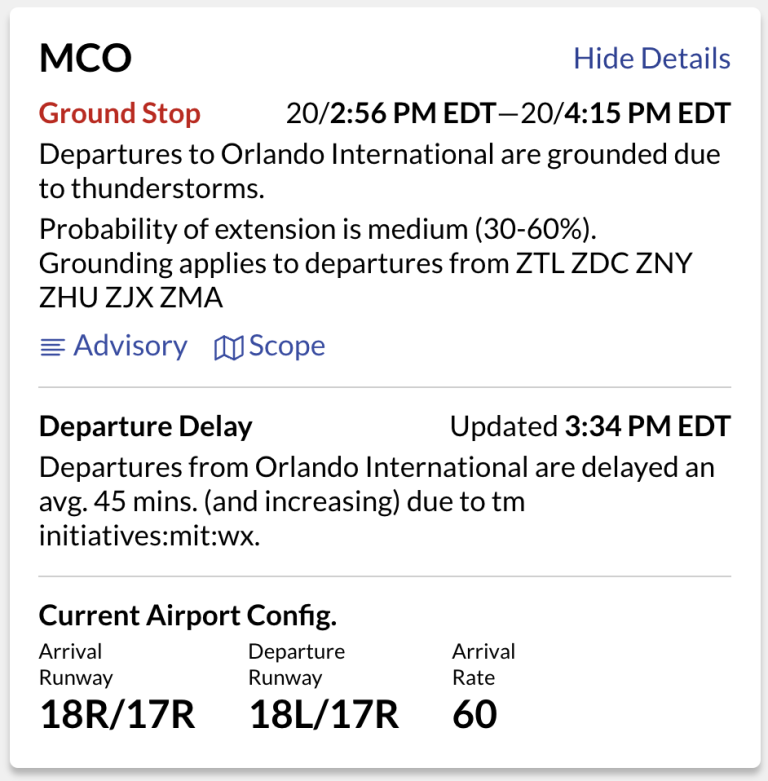Understanding The Importance Of Middle Management In Today's Workplace

Table of Contents
The Bridge Between Leadership and Employees
Middle managers act as a critical conduit, ensuring effective communication flows both upwards and downwards within the organization. Their ability to translate complex strategic initiatives into clear, actionable tasks for their teams is paramount for successful implementation. Simultaneously, they provide invaluable feedback from the frontline, offering insights into employee performance, challenges, and emerging opportunities.
Facilitating Communication and Information Flow
Effective communication is the bedrock of any successful organization, and middle managers play a central role in facilitating this. They act as interpreters, ensuring that senior leadership's vision is clearly understood and implemented by their teams. Conversely, they gather feedback from employees and relay it upwards, providing critical insights that inform strategic decisions.
- Communication Strategies: Utilizing various communication methods such as regular team meetings, one-on-one check-ins, email updates, and project management software to ensure transparency and consistent information flow.
- Active Listening: Middle managers must be skilled active listeners, encouraging open dialogue and creating a safe space for employees to voice their concerns and suggestions.
- Conflict Resolution: Addressing conflicts promptly and fairly, mediating disagreements, and finding solutions that benefit both individuals and the team.
- Feedback Mechanisms: Establishing clear and regular feedback loops, using performance reviews, informal check-ins, and 360-degree feedback to ensure continuous improvement.
Mentoring and Development of Employees
Beyond communication, middle management plays a vital role in nurturing employee growth and development. They act as mentors, coaches, and guides, helping individuals reach their full potential. This includes providing training, offering constructive feedback, and identifying opportunities for skill enhancement.
- Mentoring Techniques: Implementing coaching techniques, providing regular feedback, offering guidance on career progression, and acting as a role model.
- Performance Review Processes: Conducting fair and consistent performance reviews, providing constructive feedback, setting clear goals, and identifying areas for improvement.
- Identifying Strengths and Weaknesses: Helping employees understand their strengths and weaknesses, providing support for skill development, and offering opportunities for growth.
- Fostering a Positive Work Environment: Creating a supportive and inclusive environment where employees feel valued, respected, and empowered to contribute their best.
Driving Operational Efficiency and Productivity
Middle managers are directly responsible for driving operational efficiency and maximizing team productivity. This involves effectively managing resources, monitoring performance, and identifying areas for improvement. Their ability to optimize processes and eliminate bottlenecks is crucial for organizational success.
Resource Allocation and Optimization
Effective resource management is a critical skill for middle managers. They must efficiently allocate budgets, time, and personnel to ensure projects are completed on time and within budget. This involves strategic planning, prioritizing tasks, and delegating responsibilities effectively.
- Budget Management Strategies: Creating and managing departmental budgets, allocating resources effectively, and tracking expenses to ensure fiscal responsibility.
- Time Management Techniques: Implementing efficient time management strategies, prioritizing tasks, and delegating responsibilities to optimize team productivity.
- Efficient Team Organization: Structuring teams effectively, assigning roles and responsibilities clearly, and fostering collaboration to maximize output.
- Project Management Methodologies: Utilizing project management methodologies such as Agile or Waterfall to manage projects effectively, track progress, and ensure timely completion.
Monitoring Performance and Identifying Areas for Improvement
Middle managers continuously monitor team performance, identify bottlenecks, and implement corrective actions. This involves tracking key performance indicators (KPIs), analyzing data, and using data-driven insights to improve processes and enhance efficiency.
- KPI Tracking: Regularly monitoring key performance indicators to measure progress towards goals and identify areas for improvement.
- Process Improvement Strategies: Implementing Lean or Six Sigma methodologies to streamline processes, eliminate waste, and enhance efficiency.
- Problem-Solving Techniques: Utilizing problem-solving techniques to identify root causes of issues, develop effective solutions, and implement corrective actions.
- Data Analysis for Performance Monitoring: Analyzing data to identify trends, patterns, and insights that inform decision-making and improve performance.
Fostering Employee Engagement and Motivation
Highly engaged employees are more productive and contribute significantly to organizational success. Middle managers play a critical role in cultivating a positive work environment that fosters engagement and motivation.
Creating a Positive and Supportive Work Environment
Middle managers are responsible for building strong team morale and fostering a culture of collaboration. This involves creating a positive and supportive work environment where employees feel valued, respected, and appreciated.
- Team-Building Activities: Organizing team-building activities to enhance collaboration, improve communication, and foster a sense of camaraderie.
- Employee Recognition Programs: Implementing employee recognition programs to acknowledge and reward outstanding contributions and achievements.
- Open Communication Channels: Maintaining open communication channels to ensure employees feel heard and their concerns are addressed promptly.
- Conflict Management Strategies: Implementing effective conflict management strategies to resolve disputes fairly and constructively.
Promoting Work-Life Balance and Employee Well-being
Middle managers contribute significantly to a healthy work environment by promoting employee well-being and reducing stress. This includes supporting flexible work arrangements, promoting mental health awareness, and creating a culture that values work-life balance.
- Flexible Work Arrangements: Offering flexible work arrangements such as telecommuting or flexible hours to improve work-life balance.
- Mental Health Awareness Initiatives: Implementing mental health awareness initiatives to reduce stigma and support employee well-being.
- Promoting Work-Life Balance: Encouraging employees to prioritize their well-being and maintain a healthy work-life balance.
- Open Communication About Employee Concerns: Creating a safe space for employees to discuss their concerns and seek support without fear of retribution.
Conclusion
In conclusion, middle management plays an indispensable role in today's organizations. They act as the crucial bridge between leadership and employees, driving operational efficiency, fostering employee engagement, and ultimately contributing significantly to organizational success. Their responsibilities span communication, mentorship, resource management, performance monitoring, and the cultivation of a positive work environment. Effective middle management isn't just beneficial—it's essential.
Invest in your middle management. Strengthen your middle management team through targeted training opportunities, implement effective communication strategies, and recognize the invaluable contributions of your middle managers. Develop your middle management capabilities to unlock the full potential of your workforce. By nurturing and supporting your middle management team, you're investing in the future success of your entire organization. The complex landscape of today's business world demands strong middle management—there's no substitute. Continue exploring middle management best practices to build a truly thriving and successful organization.

Featured Posts
-
 Swiss Village Buried Glacier Collapse Leaves One Missing
May 30, 2025
Swiss Village Buried Glacier Collapse Leaves One Missing
May 30, 2025 -
 Gorillazs September Live Shows Dates Locations And Ticket Info
May 30, 2025
Gorillazs September Live Shows Dates Locations And Ticket Info
May 30, 2025 -
 Entradas Bad Bunny Conciertos Madrid Y Barcelona Preventa Live Nation
May 30, 2025
Entradas Bad Bunny Conciertos Madrid Y Barcelona Preventa Live Nation
May 30, 2025 -
 San Diego Airport Ground Stop Understanding The Implications
May 30, 2025
San Diego Airport Ground Stop Understanding The Implications
May 30, 2025 -
 Bad Bunny En Madrid Y Barcelona Compra Tus Entradas Ahora Preventa
May 30, 2025
Bad Bunny En Madrid Y Barcelona Compra Tus Entradas Ahora Preventa
May 30, 2025
